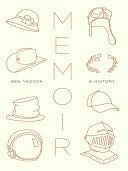
Memoir
A History
- اطلاعات
- نقد و بررسی
- دیدگاه کاربران
نقد و بررسی

Starred review from September 14, 2009
Yagoda, biographer of Will Rogers, presents a spirited account of a form of writing that since its inception has been one of the most contested and most popular. Without dwelling too heavily on the genre's most recent scandals, Yagoda begins with the fifth-century Confessions of Saint Augustine
, still cited as a prime example. Autobiography, Yagoda says, helped give rise to the invention of the novel in 1719 when Daniel Defoe published Robinson Crusoe
, “written by himself.†While this fictional memoir helped usher in real accounts of, among other things, adventures on the high seas and capture by hostile Indians, it is memoir's fraught relationship with the truth—which implicated both readers (who took Robinson Crusoe
to be a true tale) and writers (embellishing or inventing particularly sordid episodes in their lives)—that explains the memoir's longevity, popularity and breadth, says Yagoda. In a fascinating break from his chronological study, Yagoda explores the fluid definition of “truth†and whether, given memory's malleability, it's possible to achieve it in any memoir. With its mixture of literary criticism, cultural history and just enough trivia, Yagoda's survey is sure to appeal to scholars and bibliophiles alike.

Starred review from September 1, 2009
Under the memoir sun there's nothing new—just a lot more of it.
So argues biographer Yagoda (Journalism and English/Univ. of Delaware; When You Catch an Adjective, Kill It: The Parts of Speech, for Better And/Or Worse, 2007, etc.) in this lively history/cultural study of the memoir. Unlike some students of the genre, he uses autobiography and memoir interchangeably, and credits Tobias Wolff for first removing the"s" from memoirs. Yagoda notes that memoir has rapidly become literature's most popular genre, with"a million little subgenres." After an introduction, the author looks at Julius Caesar's Commentaries (noting the Emperor anticipated many others by writing of himself in the third person), then moves through the"confessions" with stops for closer looks at St. Augustine, Abelard, John Bunyan and others. He considers Benjamin Franklin's Autobiography as among the most influential; glances at works by Davy Crockett, Black Hawk and Melville; and notes the enduring, powerful effect of the I in slave narratives. About a third of the way in, Yagoda pauses to consider the issue of the bogus memoir, mentioning early fabrications by people claiming to be slaves and mountain men. (He delivers even more at the end.) The author reminds us several times that memory is not a digital recorder but a tenuous process of reconstruction. He admires the autobiography of U.S. Grant, the memoir-like writings of Mark Twain and the achievement of Helen Keller. He also considers the ubiquitous celebrity memoir—and the issue of ghostwriting—followed by an amusing disquisition on 1930s and'40s warm-and-fuzzy memoirs like Clarence Day's Life with Father and Frank Gilbreth's Cheaper by the Dozen. Yagoda also discusses the re-emergence in the'60s of stark memoirs by black writers—notably Dick Gregory and Claude Brown—and the recent explosion of the entire genre, with the unsurprising consequences of counterfeiters, fakers, narcissists and liars, and the decline in sales of literary fiction.
Substantial, engaging and convincing.
(COPYRIGHT (2009) KIRKUS REVIEWS/NIELSEN BUSINESS MEDIA, INC. ALL RIGHTS RESERVED.)

November 1, 2009
Like no other genre, memoir has splintered into multiple subgenres that resist classification. Apart from the lives of celebrities, children of celebrities, addicts, infidels, and masters of amazing feats, there are new brands: six-word memoirs, canine memoirs, and "shtick lit" (a stuntlike project undertaken for the purpose of writing about it), all part of an unprecedented and spawning publishing enterprise. Yagoda ("When You Catch an Adjective, Kill It: The Parts of Speech, for Better and/or Worse") tackles a history of memoir in order to trace its fashionableness. His use of anecdotes reveals likely progenitors and the circumstances from which the form evolved. A course is mapped from the "Confessions" of St. Augustine, to the rise of secularist writers such as Jean-Jacques Rousseau, Daniel Defoe, Benjamin Franklin, and Henry David Thoreau, to the change-issuing slave narratives and Holocaust survivor accounts. Despite fakes, fictional inventions, and battles for legitimacy, memoir remains enduringly popular. VERDICT Highly recommended for hearty readers, lovers of memoir, and students of literary and cultural studies.Katharine A. Webb, Ohio State Univ. Libs., Columbus
Copyright 2009 Library Journal, LLC Used with permission.

November 15, 2009
The number of memoirs published over the last four years increased 400 percent, and literary and cultural critic Yagoda wanted to know why. His quest resulted in an astute and entertaining history of autobiography, the most maligned, exploited, downright scandalous, yet irresistible of genres. Yagoda ponders the vagaries of memory and the difference between inner truths and hard facts. He traces the tradition back to the fifth-century classic The Confessions of Saint Augustine; designates Renaissance sculptor Benvenuto Cellinis as the first utterly modern memoir; and praises the autobiographies of Jean-Jacques Rousseau and Frederick Douglass. On the contemporary front, Yagoda identifies categories ridiculous and sublime, including misery, addiction, canine, eccentric-mother, outlaw, and redemption memoirs. Fake memoirs, including James Freys, get fresh treatment, as does the indictment of memoirs as merely narcissistic and whiny. Yagoda is at his peppery best as he resurrects overlooked memoirs and chronicles the profound impact courageous memoirs about race, religion, sexuality, mental illness, abuse, and many other sensitive, once taboo subjects have had on our collective social conscience, inspiring and sustaining positive change.(Reprinted with permission of Booklist, copyright 2009, American Library Association.)




دیدگاه کاربران